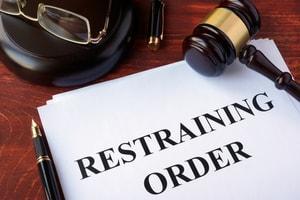Three Keys to Defending Against a Domestic Violence Charge
 People who are charged with domestic violence may feel like they are already being punished before their case goes to trial. Their accuser has likely received a temporary order of protection against them that may prevent them from returning to their home or seeing their children. Those who are falsely accused of domestic violence feel particularly hurt and confused about the sudden restrictions placed on them. Many domestic violence incidents do not have witnesses other than the accuser and the accused. The court will heavily rely on whether they believe each side's testimony about the incident. If you are facing a domestic violence charge, there are three keys to giving yourself the best chance to win your case:
People who are charged with domestic violence may feel like they are already being punished before their case goes to trial. Their accuser has likely received a temporary order of protection against them that may prevent them from returning to their home or seeing their children. Those who are falsely accused of domestic violence feel particularly hurt and confused about the sudden restrictions placed on them. Many domestic violence incidents do not have witnesses other than the accuser and the accused. The court will heavily rely on whether they believe each side's testimony about the incident. If you are facing a domestic violence charge, there are three keys to giving yourself the best chance to win your case:
- Obey the Order of Protection: Regardless of whether you are guilty of domestic violence, you can face criminal charges for violating an order of protection. That means you should not attempt to contact your accuser, either directly or through a third party. If your order prohibits you from entering your residence, you risk arrest if you sneak into your home to get your belongings. Talk to your attorney if you are concerned about properties at your residence. There are ways to secure your properties that do not violate the order of protection.
- Be on Your Best Behavior: You may have a reason to be angry at your accuser if you believe the domestic violence accusation is false. However, your public appearance must remain calm. Emotional outbursts – whether directed at your accuser or shared with someone else – support the idea that you are unstable and capable of violence. Your public behavior includes anything you say on social media and during seemingly private conversations with others, both of which could be used as evidence in your trial.
- Remain Consistent with Your Story: You do not have to testify during your trial if the prosecution lacks the evidence to prove that you are guilty of domestic violence. However, it may help for you to testify if your accuser is giving an inaccurate or incomplete account of what happened. It is important that you are consistent with your facts and the reason that you claim domestic violence did not occur. Your accuser may have fabricated the incident, the injury may have been an accident, or you may have been acting in self-defense. Whatever the truth is, staying consistent will give you credibility.
Contact a Wheaton Criminal Defense Attorney
You should immediately talk to a criminal defense lawyer if you are charged with domestic violence or served notice of an order of protection. A DuPage County criminal defense lawyer at Stephen A. Brundage, Attorney at Law, can help you respond to this allegation in a constructive manner. Call 630-260-9647 to schedule a consultation.
Source:
http://www.ilga.gov/legislation/ilcs/ilcs5.asp?ActID=2100

 630-260-9647
630-260-9647




